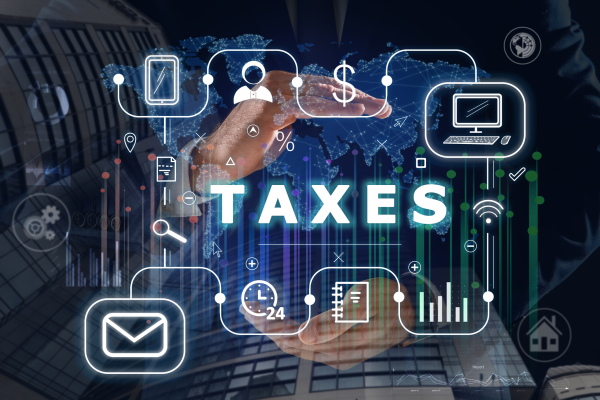The Government issued proposals for an online sales tax earlier this year. Here we take a look at the arguments for and against and what challenges the introduction of such a tax might pose.
Why Is An Online Sales Tax Needed?
The coronavirus pandemic and consequent lockdowns accelerated the growth of online sales and hastened the decline of the high street. That dramatic growth spurt has since receded, but nevertheless, online sales continue to grow at the expense of the high street. The argument is that traditional bricks and mortar businesses are at an unfair disadvantage due to having to pay business rates. This had led to calls to re-dress the imbalance. The Government says it does not intend to discourage online shopping, but only to use the additional revenue to reduce the business rate burden for retail properties. The introduction of an online sales tax presents huge challenges.
Do Online Retailers Really Have a Competitive Advantage?
It wasn’t so long ago that an online only business model was the standard for new merchants seeking a low investment business model. But more recently a lot of brands have focused on developing their physical presence to enhance the retail experience they offer their customers. Online businesses have their own cost pressures. The customer acquisition cost (“CAC”) can be significant. Digital marketing costs are increasing as there is more competition for space. The average cost per click for Facebook advertising has grown from $0.70 to $2.25 in 3 years. There are also consumers that want a physical shopping experience they couldn’t get during the pandemic. Having that physical experience also helps to reduce the volume of returns, which is a constant thorn in the side on online retailers. Then there are those that avoid the high street whenever possible due to traffic, car parking etc. – the general hassle of getting there and back. It is doubtful as to whether these consumers can be attracted back to the high street with an increase in online sales prices.
What Challenges Would An Online Sales Tax Present?
One of the first issues is the question as to what exactly is an online sale. There are different types of online sale. Click and Collect sales are clearly made and paid for online, but rely on the same retail outlets the proposals are trying to protect. You can now order your meals and drinks in some restaurants using the store’s app. The order is clearly made online, but consumed on the premises (or possibly taken away). To tax these sales would surely be self defeating. There are also questions as to whether the tax should apply to goods or services or just tangible goods. Books, CD’s etc. have both physical and online equivalents, and the online version would be considered a service. If services were not taxed, the physical product would be more expensive (which it already is) than the online product. That’s just one example of the conundrums that an online tax would present.
As the ICAEW pointed out in their consultation response many businesses now have both an online and physical presence. That trend has accelerated as a result of the pandemic as physical retailers took to “bricks and clicks” models in their droves as they looked at ways to survive. And as highlighted above, there is a trend of online only retailers also adopting a similar model, even if their bias is still towards online. It is quite possible that some physical retailers that have moved into online sales could end up paying more in online sales taxes than they will save in business rates.
How Could It Work?
The proposals suggest that an online sales tax would work in much the same way as VAT, collected by the retailer. It would only apply to UK customers, which will undoubtedly push online retailers to focus on expanding their market penetration in other marketplaces. It is likely that there will be a threshold to exclude smaller traders, although no amount has been suggested. Many commentators believe this will be in the region of £1m to £2m. The tax could be a percentage of revenue (however that is defined), maybe 1 or 2%, or a flat fee based on order volumes (another challenge as that would penalise businesses with low order values). The tax is likely to be reported and paid quarterly.
Timescales
We can expect further announcements at the time of the Autumn Budget.
Explore our International VAT and GST services for streamlined cross-border transactions. Reach out to us today, please give us a call on 01942 725419.

